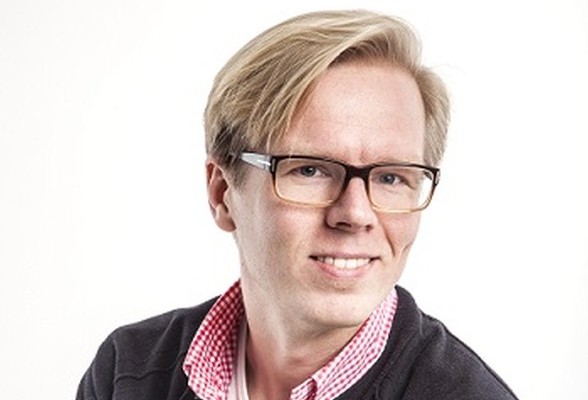
Posted on 16th August 2014
Project Partner Introduction: Antti Aavikko and Keskuspuisto Vocational College
Hello everyone,
My name is Antti Aavikko, and I work with Keskuspuisto Vocational College in Helsinki.
Keskuspuisto vocational college (KVC) is a vocational special education institute. We have approximately 1,000 students, aiming for either vocational qualification or towards independent life and better everyday skills throughpreparatory education. In Finland, Keskuspuisto Vocational College is one of the pioneers in the field of secondary level education for people on the autistic spectrum.
I have been working for KVC as a teacher, in a special group aimed for students with learning difficulties related to neuropsychiatric disorders. Currently I work as a manager in charge of the preparatory education for disabled students.
My professional interests at the moment are in the areas of alternative and augmentative communication methods and in accessible school design. We are planning a new building for 2018, and I am happy to be in a key role in that process.
In the Autism&Uni project, my task is to do some of the networking, and to discuss ideas with Heta, who is doing most of the more concrete work. Our main role in this project is dissemination; to make the project results known and available. We will also post regular news on how the project is evolving. Right now we are in preliminary data-gathering stage, and we would like you to participate by filling in our questionnaire.
We will also organize the final seminar for the project in February 2016 – more on that later.
Besides our actual work packages in the project, we try to bring in our practical know-how and our experience in working with students on the spectrum.
In the discussions with both students and professors from many different fields and levels of education, we have noticed that certain themes come up every time. When we speak of students on the autistic spectrum, we need to make a difference between learning difficulties and other difficulties that affect one’s studies. The latter seem to be the ones that we find more difficult to get a grasp of: skills related to handling social situations, time-management, stress control, everyday life skills…the list goes on. We usually recognize these issues with ease. But from there on we’re not so certain; should we teach specific skills, modify the environment, or arrange support services? And if so, how much, and who should be in charge of organizing the support, who should teach these skills and on which courses. Or, how we can get the student to apply for support, if the actual problem is in getting such things done.
The actual end product of this project is still finding its shape, but there will be a software application based on scenarios and scenario-based learning. By asking people to tell their stories, we try to recognize some key scenarios to function as the basis for building simulations. These scenarios are meant to offer the students a chance of considering the logic of a certain scenario beforehand, and also of figuring out their own role in the scenario.
One of our challenges at the moment is different cultural settings: even when we find the problems to be in the same areas of life, our educational systems and cultural codes are quite different. We cannot base anything on universal sets of instructions. At this point, the theme of time-management (including planning ones free time and sleep) appears to be something we should discuss further.
Antti Aavikko
Manager, Preparatory Education,
Keskuspuisto Vocational College



